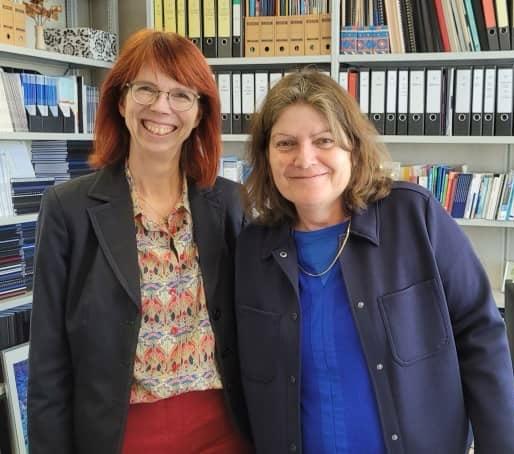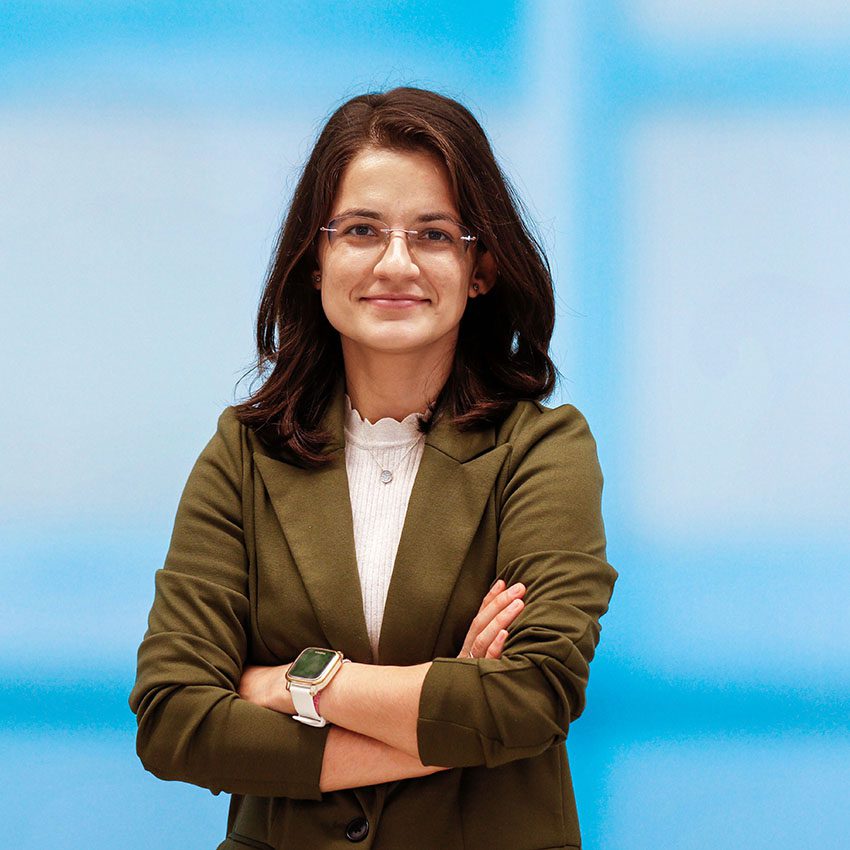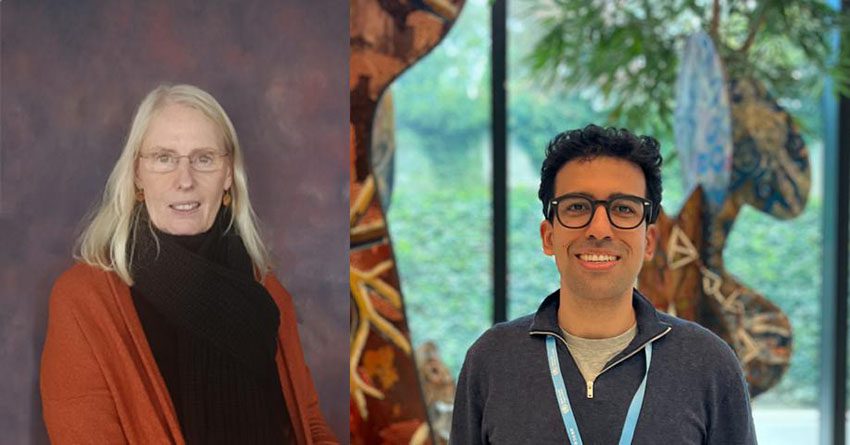2. IMPART Research Day Online
07 November 2025 – 10:00 a.m. to 8:00 p.m.
various. Speaker
You have surely been waiting for it: the 2. IMPART Research Day Online on November 7, 2025, has already been announced several times. Now the time has come: the program with the theme ‘Getting into Motion’ is complete!
You will see: it is a promising compilation with outstanding professional expertise. We are very much looking forward to the event itself and to the many encounters with you and the speakers from Germany and abroad! Is the excitement building?
We recommend registering soon for this internationally oriented event, which will be offered via ZOOM!
The purpose of our IMPART Research Day Online is reflected above all in its focus on networking and discussion. To ensure this, the number of participants is limited to 50 people, just as it was last year!
The participation fee also remains unchanged from last year and is again 270 euros.
Get Moving – Your IMRO Program for 07/11/2025
2. IMPART Research Day Online
10:00 a.m. – 11:00 a.m.: Prof. Dr. Nicola Baumann (Uni Trier)
Small Movement – big effect: cross-hemispheric stimulation promotes self-regulation
Abstract
Putting good intentions into practice (capacity to act) and learning from negative experiences (self-growth) is not that easy. According to the theory of personality-system interactions (PSI), these two self-regulatory skills require the cooperation of two lateralized cognitive systems. A left-hemisphere cognitive system must work together with a right-hemisphere cognitive system.
However, the lateralized cognitive systems are antagonistically interconnected and are supported by opposing affective states. Nevertheless, they can work together when affective changes or cross-hemispheric activations open a window of opportunity for information exchange. Small motor exercises can be used specifically for cross-hemispheric activation, thereby promoting self-regulation.
11:00 a.m. – 12:00 p.m.: Darlin Engstle (Uni Trier)
Validation of the autonomy motive
Abstract
Autonomy as the Fourth Basic Motive?
The autonomy motive (also referred to as the freedom motive) has already been researched in several studies, but in parts of the scientific community, it has not yet been fully recognized as an independent motive. Particularly the discussion about whether or not it is part of the power motive has not yet been fully resolved
In the present study, an innovative approach was chosen in order to validate the autonomy motive as a potential fourth basic motive alongside the established ‘Big Three’ (achievement, affiliation and power). The aim of this research was to empirically prove the construct and content validity of the autonomy motive. For this purpose, a probabilistic evaluation standard for the Operant Motive Test (OMT) was further developed using the Item Response Theory and integrating the fourth motive
By using Natural Language Processing, it was possible to automatically classify the fourth motive in a reliable and valid manner and to differentiate it from the other three motives at the word level. The article not only shows how modern methods can contribute to greater reliability, replicability and efficiency in psychological diagnostics, but also reveals the potential that lies in expanding the motive structure.
12:00 – 1:00 p.m.: Lunch break
01:00 – 02:00 p.m.: Prof. Dr. Stefan Diestel (Uni Wuppertal)
Influences of Precarious Employment on Political Attitudes and Voting Behavior from the Perspective of PSI Theory: A Longitudinal Study on the 2025 German Federal Election
Abstract
Work-related stress and psychological load have increased significantly in recent decades, while right-wing populist attitudes have also become widespread among the population. Although a direct link between these two developments has not yet been established, the Personality Systems Interaction theory suggests that stressful circumstances may well promote extremist attitudes.
In particular, dysfunctional self-management can contribute to the adoption of ideological worldviews through self-infiltration. In the present study on the 2025 federal election, correlations were found between work stress (precarious work, self-control requirements, and exploitative leadership), self-management processes, implicit affects and voting decisions in favour of right-wing parties.
In line with the findings of PSI research, the results show that work stress predicts right-wing authoritarian attitudes and voting decisions in favour of right-wing parties via dysfunctional regulatory processes.
02:00 – 03:00 p.m.: Dr. Niyati Thakur (Uni Trier)
Affective and motivational determants of meaning in life. The role of Implicit Positive Affect and Self-Access in contributing to meaning in life.
Abstract
As Viktor Frankl said “In the end, what people really want is not to be happy, but rather a reason to be happy “, beyond needs and goals lies the importance of having meaning and purpose in life. Loss of sense of meaning has a vast range of negative psychological outcomes. To find meaning in life requires access to the self because the self-system is based on extended, parallel-processing networks that provide an overview of beliefs and opinions that help a person give meaning to life and decide which goals to pursue.
We operationalized loss of meaning as suicidal tendencies from the Symptom Check List (SCL). We hypothesized that implicit positive affect prevents loss of meaning especially if this resource is embedded in the self as indicated by self-regulated motive enactment in the Operant Motive Test (OMT: intrinsic and integrative levels 1 & 3). Our sample was therapy-based (N = 1832, 15–77 years, M = 39.1, SD = 12.5). In hierarchical regression, we found significant main effects of implicit positive affect (β = -.07,t(1830) = -3.03, p < .001) and self-regulated motive enactment (β = -.57, t(1830) = -4.34, p < .001) and a significant interaction effect (β = -.20, t(1829) = -2.58, p < .01).
Thus, implicit positive affect is not sufficient as a resource for a sense of meaning in life but needs to relate to high-level processes and extended autobiographical networks. We discuss our findings within the purview of the theory of Personality-Systems-Interactions (PSI).
03:00 – 04:00 p.m.: Max-Leon Wiese (Universität Witten/Herdecke)
Dr. Marlies Pinnow (Ruhr University Bochum) – Power for Healthy Energy: The Relationship Between Motives, Eating Behavior, and Body Weight
Abstract
Obesity contributes to a variety of secondary diseases and has long since become a widespread public health problem. For this reason, measures to prevent and reduce obesity are becoming increasingly important. Current guidelines for the treatment and prevention of obesity emphasise the relevance of psychological treatment approaches
In this context, exploring needs and motives as human driving forces and understanding and assessing them from the Personality Systems Interaction theory perspective, offers a promising approach. The added value of considering motives lies in particular in their important function for successful self-management
The task of corresponding programmes should therefore be to select goals for both preventive and therapeutic interventions in such a way that they correspond optimally with the individual’s own motives and needs and can be achieved with as little willpower as possible. This could create the basis for comprehensive personal and health development that stabilises ‘healthy’ food intake sustainably. The present study aims to determine whether discrepancies between explicit and implicit motives are associated with increased body weight and eating behaviour.
The results show that the group of people with increased body weight is characterised by a significantly dominant explicit freedom motive, while the group of people with lower body weight is characterised by a dominant implicit freedom motive. The functions of motive discrepancies are discussed in the context of an adipogenic environment.
04:00 – 05:00 p.m.: Prof. em. Dr. Julius Kuhl (Uni Osnabrück)
The Dancing (Moving) Self
Abstract
The self is the psychological system that, under favorable developmental conditions, enables the highest level of integrative competence. It integrates a multitude of personally relevant experiences, including linguistic, musical, and dance experiences. It integrates the associated cognitive memories with all relevant bodily perceptions and emotions, even with completely contradictory feelings. The findings of a pilot study are reported, which indicate that integrative competencies are also noticeable in dancing.
05:00 – 06:00 p.m.: Salome Meuser (Uni Trier)
Science meets spirituality: Self access by yoga practice
Abstract
What Happens When Yoga Is Not Only Practiced but Systematically Studied?
What happens when you not only practise yoga but also systematically research it?
This lecture – based on an empirical master’s thesis – highlights initial findings on how yoga practice can promote access to one’s own self. The study is based on the PSI theory and provides exciting insights into the connection between the meditative form of movement, namely yoga, and personality processes. The results also form the basis for a further dissertation on the question: “How does yoga really work – is it equally effective for all people, and why?”
Networking Meeting on Development and Personality
PSI – Education – from 6:00 p.m.
06:00 – 07:00 p.m.: Jelena Stern (Uni Nowosibirsk)
Getting started with the Teacher Network Meeting – Learning foreign languages in a brain-friendly and resource-efficient way
07:00 – 08:00 p.m.: Networking Meeting on School – Teaching – Pedagogy I
Participants from Switzerland, Germany, Austria, Spain, Russia, Argentina, Belgium, Luxembourg
08:00 p.m.: Ending
Note: Changes to the program’s schedule and composition are subject to adjustment and will be updated on our website.
Investment: EUR 270.00 (for the entire Research Day)
Past Research Days
This post is also available in: German









